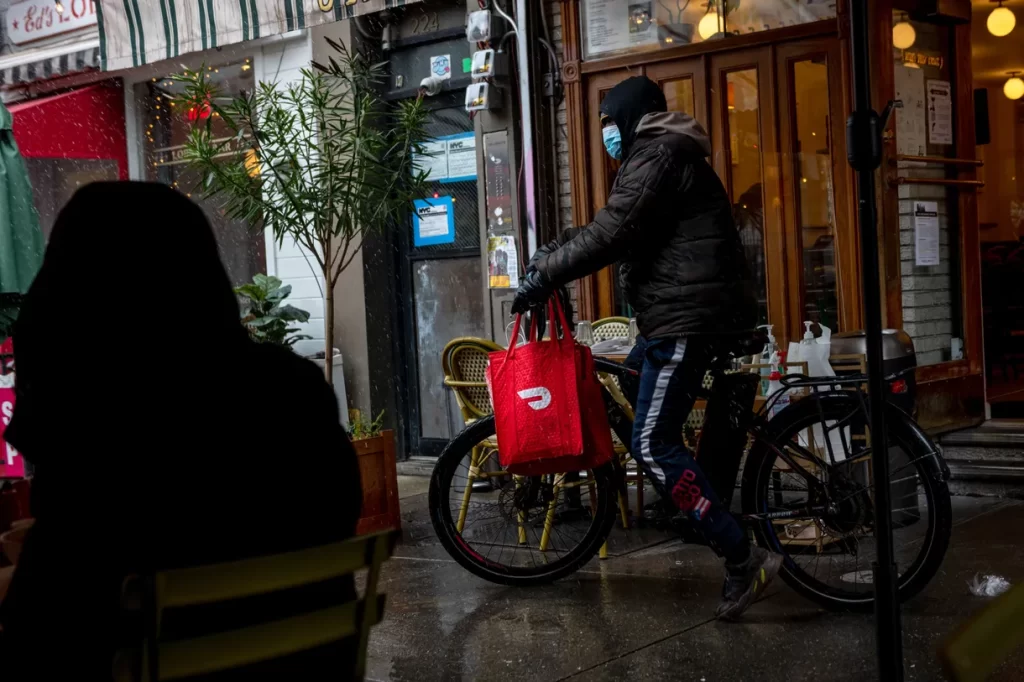
Uber, Doordash, and Grubhub sued New York City on Thursday to stop a law from going into effect that would raise the minimum wage for tens of thousands of delivery workers, the latest step in an ongoing feud between food delivery apps and city officials. The lawsuit was first reported by the Wall Street Journal.
The three companies and Relay, a New York-based food delivery platform, each filed lawsuits in the Supreme Court of New York. They claim they would have to have to raise the fees they charge consumers and limit the number of workers who can work on their apps to offset the higher minimum wage, according to the suits. “The rule must be paused before damaging the restaurants, consumers, and couriers it claims to protect,” Josh Gold, a spokesperson for Uber, said in a statement to the New York Times on Thursday.
The new minimum wage was approved by City Council last month following months of back and forth between delivery app companies, the workers they employ, and city officials. The law goes into effect on July 12 and requires delivery companies to pay their workers either 50 cents for each minute they spend on a trip, or around $18 per hour for the time they are active on their apps, not including tips. The minimum will increase to just under $20 in 2025.
Supporters of the higher minimum wage say it more fairly compensates delivery workers, who are considered independent contractors and are not provided health care coverage or other benefits by the apps they work for. “Delivery workers, like all workers, deserve fair pay for their labor, and we are disappointed that Uber, DoorDash, GrubHub, and Relay disagree,” Vilda Vera Mayuga, commissioner of New York City’s Department of Consumer and Worker Protection, said in a statement to the Times.
There are around 60,000 delivery workers in New York City, who are paid an average of $11 an hour after tips and expenses, according to an estimate from the city. The city’s current minimum wage is $15 an hour.
The historic minimum wage was first proposed in 2021. The policy was supposed to go into effect at the start of 2023, but it was delayed following lobbying efforts from delivery app companies, who argued higher hourly wages would result in more limitations on workers. Under a former proposal, the Department of Consumer and Worker Protection suggested paying delivery workers a minimum of $23.82 per hour by 2025. The rate was reduced to its current level, $19.96 an hour, in March.





























